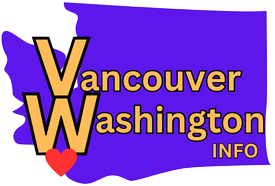
DO NOT Buy a Home Right Now in Vancouver, WA
If you’re thinking about buying a home in Vancouver, WA right now, you might want to hold off for a bit. In this video by Living in Vancouver & Camas Washington, they discuss five reasons why now might not be the best time to make that purchase. They emphasize the importance of buying when it’s right for you, not when it’s right for the realtor. Factors such as affordability, interest rates, future plans, current rent, and savings are all things to consider before diving into the real estate market. So, take a moment to pause and evaluate your personal circumstances before making such a significant financial decision.
In Clark County, WA, the real estate market has seen a buying frenzy in recent years. However, that doesn’t mean it’s the right time for everyone to buy. It’s vital to evaluate your financial situation and consider the affordability of the mortgage. If you have a low-interest rate on your current home and don’t have a pressing need or desire to move, it may be more beneficial to save money and stay put. Additionally, if you don’t plan on staying in the home for at least three years, you might want to wait before entering the market. Having sufficient savings to cover unexpected costs or emergencies is also crucial before buying a home. Remember, the best time to buy a home is when it aligns with your personal circumstances, so take the time to evaluate before making a decision.
Table of Contents
ToggleHousing Market Trends in Vancouver, WA
Understanding current market rates
If you’re considering buying a home in Vancouver, WA, it’s crucial to understand the current housing market trends. The real estate market in Vancouver has experienced significant growth over the past few years, with prices steadily increasing. As of now, the median home price in Vancouver is around $400,000, making it a desirable but competitive market. However, it’s essential to note that market rates can vary depending on the type of property and neighborhood you’re interested in.
To gain a better understanding of the current market rates in Vancouver, it would be wise to consult with a local real estate agent. They have access to up-to-date information on listing prices, recent sales, and market trends. By analyzing this data, you can get a sense of how much properties are selling for in specific areas of Vancouver.
Predictions for the future real estate market
While it’s impossible to predict the future with absolute certainty, experts have made predictions about the real estate market in Vancouver, WA. Many believe that the housing market will continue to appreciate, albeit at a slower pace compared to previous years. Factors such as population growth, limited inventory, and strong demand contribute to these predictions.
However, it’s important to approach these projections with caution. External factors, such as economic changes or local zoning regulations, can significantly impact the housing market. Therefore, it’s wise to seek the guidance of real estate professionals who closely monitor market trends and can provide realistic insights into the future of Vancouver’s real estate market.
Impacts of the pandemic on the housing market
The COVID-19 pandemic has undoubtedly affected the housing market in Vancouver, WA. Initially, there was uncertainty and a brief slowdown as people adjusted to the new normal. However, as restrictions eased and the market adapted to virtual showings and contactless transactions, the market quickly rebounded.
One significant impact of the pandemic has been the increase in demand for suburban and rural homes. With remote work becoming more prevalent, many individuals and families have chosen to move away from crowded urban areas in search of more space and a quieter lifestyle. This increased demand has driven up prices in suburban areas surrounding Vancouver.
Additionally, the pandemic has led to historically low interest rates, making homeownership more affordable for many buyers. These low rates have spurred increased demand and competition in the market.
Individual Financial Situations and Home Ownership
Assessing the ability to afford a mortgage
Before diving into the world of homeownership, it’s essential to assess your financial situation realistically. Affording a mortgage involves more than just paying the monthly mortgage payment; factors such as down payment, closing costs, property taxes, and homeowners insurance should also be considered.
Evaluating your income, expenses, and savings is a good starting point. This will give you an idea of how comfortably you can handle additional housing costs while still maintaining a healthy financial balance. It’s crucial to have a stable income and manageable debt-to-income ratio to ensure you can comfortably meet your mortgage obligations.
Understanding the implications of interest rates
Interest rates play a significant role in determining the affordability of homeownership. When interest rates are low, as they are currently, monthly mortgage payments are more manageable. However, it’s important to remember that interest rates can fluctuate over time. Even a small increase in rates can have a significant impact on your monthly payment and overall affordability.
Researching and understanding the current interest rates and how they affect your potential mortgage is essential. A slight increase in interest rates can lead to higher monthly payments and potentially limit your purchasing power. Therefore, it’s crucial to consider the long-term implications of interest rates when deciding on homeownership in Vancouver, WA.
Importance of savings prior to purchase
Saving money before purchasing a home is not only a smart financial move but also a responsible one. Having savings can provide you with a safety net and help you navigate unexpected expenses that may arise during the home buying process or after moving into your new home.
In addition to the down payment and closing costs, it’s essential to account for other expenses such as moving costs, furniture, repairs, and home improvements. It’s advisable to have an emergency fund in place to cover at least three to six months of living expenses. This way, you’ll have peace of mind knowing that you can handle any unexpected financial challenges that may come your way.
Timing in Real Estate Purchases
Why now might not be the right time
While the Vancouver housing market may seem enticing, it may not always be the right time for everyone to buy a home. There are several factors to consider before making such a significant financial commitment.
Firstly, if you’re unsure about your long-term plans or expect to relocate within a short period, buying a home may not be the best decision. Purchasing a home and then selling it soon after can result in transaction costs, including real estate agent commissions and closing costs, which can add up significantly.
Secondly, if you’re currently facing financial instability or have a high debt load, it may be wise to focus on stabilizing your financial situation before taking on the responsibilities of homeownership. Being financially prepared will help ensure that you can comfortably meet your mortgage payments, avoid excessive debt, and properly maintain your home.
Considerations on the best time to buy a house
The decision of when to buy a home in Vancouver depends on various factors unique to each individual or family. One consideration is your personal financial stability and readiness for homeownership. Confirming that you have a steady income, manageable debt, and sufficient savings will help determine if you’re prepared to take on the financial responsibilities of homeownership.
Additionally, market conditions can also affect the best time to buy a house. It’s essential to monitor the market trends, including inventory levels, interest rates, and other economic factors that influence the housing market. Collaborating with a knowledgeable real estate agent who has expertise in the Vancouver market can provide valuable insights on the optimal timing for your home purchase.
Negotiating power in a competitive market
Vancouver’s housing market can be highly competitive, with multiple buyers vying for the same property. In such a market, having strong negotiating power can make a significant difference in your ability to secure the home you desire.
To enhance your negotiation power, it’s useful to be pre-approved for a mortgage before beginning your home search. A pre-approval demonstrates to sellers that you are a serious buyer with the financial capacity to close the deal. Additionally, having a knowledgeable real estate agent by your side can help you navigate negotiations effectively and potentially secure a better deal.
Long-Term Plans and Home Ownership
Geographical stability and home purchases
When considering homeownership in Vancouver, WA, it’s crucial to evaluate your geographical stability. If you have long-term plans of staying in the area for at least several years, buying a home can provide stability and potentially be a sound investment.
However, if you anticipate relocating within a short period or are uncertain about your future plans, renting may be a more suitable option. Renting offers flexibility and allows you to move more easily without being tied down to a property.
The three-year rule of home ownership
The three-year rule of home ownership is a general guideline that examines the minimum duration of homeownership necessary to offset the costs associated with purchasing a home. In many cases, it takes at least three years to recoup the transaction costs, including closing costs and realtor fees, through potential appreciation in home value.
However, it’s important to recognize that this rule may vary depending on market conditions and individual circumstances. In a rapidly appreciating housing market like Vancouver’s, the timeline for recouping costs may be shorter. Conversely, factors such as high transaction costs or a slow real estate market could extend the time required to break even.
The implications of relocating after short-term ownership
If you anticipate relocating soon after purchasing a home in Vancouver, be aware of the potential implications. Selling a home shortly after buying it may result in financial losses due to transaction costs and potential market fluctuations. It’s crucial to thoroughly consider your future plans and evaluate the potential consequences of short-term ownership before making a commitment.
If relocation is inevitable in the near future, renting may be a more practical option. Renting allows you to avoid the additional costs associated with buying and selling a home and grants you the flexibility to move easily when needed.
Renting vs Owning in Vancouver, WA
Financial implications of renting versus owning
In Vancouver, WA, both renting and owning a home have financial implications that should be carefully considered. Renting offers flexibility and lower upfront costs compared to homeownership. When renting, your financial responsibilities are typically limited to monthly rent and utility payments, as most maintenance and repairs are covered by the landlord.
On the other hand, owning a home allows you to build equity and potentially benefit from property appreciation. However, homeownership comes with additional costs such as mortgage payments, property taxes, homeowners insurance, and maintenance expenses.
Analyzing your financial priorities, long-term plans, and current budget will help determine which option is more financially viable for you. It’s advisable to calculate all associated costs and compare them with your current income to assess affordability accurately.
Benefits of low rental rates
Renting in Vancouver, WA can provide certain advantages, especially during periods of low rental rates. Lower rental rates can potentially free up more disposable income, allowing you to save for other financial goals or invest in other asset classes.
If you value the flexibility of not being tied down to a specific property or neighborhood and prefer to have more liquidity, renting may be a smart choice. Additionally, renting can allow you to explore different areas of Vancouver before committing to a specific location if you’re unfamiliar with the city.
Evolution of rental rates in the city
Over the past few years, rental rates in Vancouver, WA, have shown a gradual increase due to population growth and limited inventory. However, rates can fluctuate depending on various factors, including economic conditions, local housing policies, and changes in supply and demand dynamics.
Keeping an eye on rental market trends and consulting with local experts can help you gauge the evolution of rental rates in the city. This information can assist you in making an informed decision on whether renting or owning aligns better with your financial goals and aspirations.
Alternative Financial Priorities
Weighing home ownership against other financial goals
While owning a home is often considered a significant financial milestone, it’s essential to assess how it aligns with your other financial goals. Buying a home requires a substantial financial commitment, often tying up a large portion of your savings and income.
Consider the importance of other financial priorities in your life, such as saving for retirement, paying off debt, or funding your children’s education. Balancing these goals is a delicate process, and it’s crucial to evaluate how homeownership fits into your overall financial plan.
Effects of high-cost real estate on personal finance
High-cost real estate, as seen in Vancouver, WA, can have a considerable impact on personal finance. Purchasing a home in an expensive market typically requires a larger down payment, potentially leading to diminished liquidity and allocation of more funds towards housing expenses.
Be sure to evaluate the long-term affordability of owning a home and how it will affect your overall financial well-being. Consider factors such as the percentage of your income that will go towards housing expenses and how that compares to recommended guidelines. Maintaining a healthy financial balance is crucial to avoid being house-rich but cash-poor.
Investing in other asset classes over real estate
While real estate is a popular investment option, it may not be the right choice for everyone. Especially in a high-cost market like Vancouver, WA, where the barrier to entry can be significant, exploring other asset classes may be more beneficial for some individuals.
Investing in stocks, bonds, or mutual funds can potentially provide a higher level of liquidity and diversification. It’s important to consult with a financial advisor to determine the optimal investment strategy based on your risk tolerance, financial goals, and individual circumstances.
Potential Risks of Buying a Home Now
Current housing market volatility
The housing market is not immune to volatility, and it’s essential to consider the potential risks associated with buying a home in a volatile market. While Vancouver’s real estate market has shown steady appreciation over the years, there is always a possibility of fluctuations in property values.
Market corrections or economic downturns can result in temporary decreases in home prices. If you don’t plan to stay in the home for an extended period, these fluctuations may affect your ability to recoup your investment when selling.
Financial implications of a bad purchase
Making an ill-advised home purchase can have severe financial implications. It’s crucial to thoroughly research and evaluate properties before making a decision. Consider factors such as the condition of the home, its potential for appreciation, and the overall value it offers.
Purchasing a property that requires extensive repairs or has hidden issues can lead to unexpected financial burdens. Additionally, overpaying for a property or buying in an area with limited growth potential may limit your ability to sell the home at a profit in the future.
Understanding foreclosure risk
When purchasing a home, it’s important to be aware of the risk of foreclosure. Foreclosure occurs when a homeowner is unable to make mortgage payments, leading to the lender repossessing the property.
While the risk of foreclosure may be relatively low in a stable market like Vancouver, WA, unforeseen circumstances such as job loss or unexpected expenses could impact your ability to make mortgage payments. It’s crucial to have an emergency fund and maintain a stable financial situation to mitigate the risk of foreclosure.
Effects of Real Estate on Personal Debt
Impact of mortgage debt on personal finances
Taking on a mortgage means assuming a significant amount of debt, and it’s important to understand the impact it can have on your personal finances. Mortgage debt becomes a monthly obligation that must be factored into your budget alongside other financial responsibilities.
Evaluating your debt-to-income ratio is crucial when considering a mortgage. Lenders typically prefer borrowers with a lower debt-to-income ratio, as it indicates a lower risk of defaulting on payments. It’s important to ensure that your total debt, including the mortgage, remains manageable within your current income.
Link between home ownership and overall debt
Homeownership can impact overall debt in various ways. While taking on a mortgage creates new debt, it also offers the potential for homeowners to build equity over time, which can contribute to wealth creation and financial stability.
However, it’s important to remember that homeownership also comes with additional expenses and financial responsibilities. Property taxes, maintenance costs, and homeowners insurance can add to your overall debt load. It’s essential to weigh the long-term benefits of homeownership against the potential increase in debt and ensure you can comfortably manage all your financial obligations.
Ways to manage debt when considering home ownership
Managing debt is crucial when considering homeownership. Here are a few strategies to help you effectively manage debt while contemplating the purchase of a home:
-
Pay down existing debt: Paying off high-interest credit card debt or other loans before taking on a mortgage can help improve your overall financial situation. It reduces the debt-to-income ratio, making you a more attractive borrower to lenders.
-
Create a budget: A well-structured budget allows you to allocate funds towards debt repayment while still meeting necessary living expenses. It helps ensure you’re making progress towards your financial goals while prioritizing responsible debt management.
-
Seek professional advice: Consulting with a financial advisor can provide valuable insights and guidance on debt management strategies. They can help you create a comprehensive plan to minimize debt and achieve your homeownership goals.
The Real Cost of Home Ownership
Hidden costs of buying a house
When purchasing a home, it’s essential to consider the hidden costs that may not be immediately apparent. These costs can include appraisal fees, home inspections, title insurance, and legal fees. It’s crucial to budget for these expenses to avoid any financial surprises during the home buying process.
Additionally, homeownership comes with ongoing expenses such as homeowners insurance, maintenance and repairs, and association fees (if applicable). Having a clear understanding of the real cost of homeownership will help you determine if it aligns with your financial capabilities.
Maintenance costs for home owners
Homeownership entails ongoing maintenance costs that should not be underestimated. Regular maintenance and repairs are necessary to ensure your home remains in good condition and retains its value. These costs can include landscaping, HVAC servicing, plumbing repairs, and general upkeep.
Creating a maintenance fund or setting aside a portion of your monthly budget specifically for these expenses is a wise practice. Being financially prepared for maintenance costs will help you avoid unnecessary stress and ensure that your home remains in excellent condition.
Impact of property taxes on home ownership costs
Property taxes are another significant expense to consider when owning a home. The amount you pay in property taxes is determined by the assessed value of your property and the local tax rate.
In Vancouver, WA, property taxes can vary depending on the specific location and the services provided by the local government. It’s crucial to research and understand the estimated property tax rates for areas you’re considering, as higher tax rates can significantly impact your overall homeownership costs.
Conclusion
Weighing the pros and cons
When considering homeownership in Vancouver, WA, it’s essential to weigh the pros and cons of buying a home. Assessing your financial situation, evaluating market trends, and considering your long-term plans are crucial steps in making an informed decision.
Owning a home offers benefits such as potential equity growth and stability in a desirable location. However, it comes with financial responsibilities, potential risks, and a significant upfront investment.
Personalizing the decision to buy a home
Ultimately, the decision to buy a home in Vancouver, WA, is a personal one that should align with your own financial goals and aspirations. It’s essential to carefully evaluate your financial capabilities, future plans, and the real estate market to ensure that homeownership is the right choice for you.
By considering the potential risks, financial implications, and long-term impacts, you can make an informed decision that suits your individual circumstances.
A look into potential future trends
While we can’t predict the future with absolute certainty, it’s helpful to consider potential future trends in the Vancouver, WA housing market. Factors such as population growth, economic conditions, and changes in housing policies can impact the real estate market.
Staying informed about market trends, consulting with local real estate professionals, and regularly reassessing your financial goals will help you adjust your homeownership plans as needed. By staying adaptable and proactive, you can make the most of opportunities while protecting your financial interests.
You May Also Like

Vancouver Washington Utilities Contact Info
27 February 2024
Languages Spoken in Vancouver WA
11 January 2024


